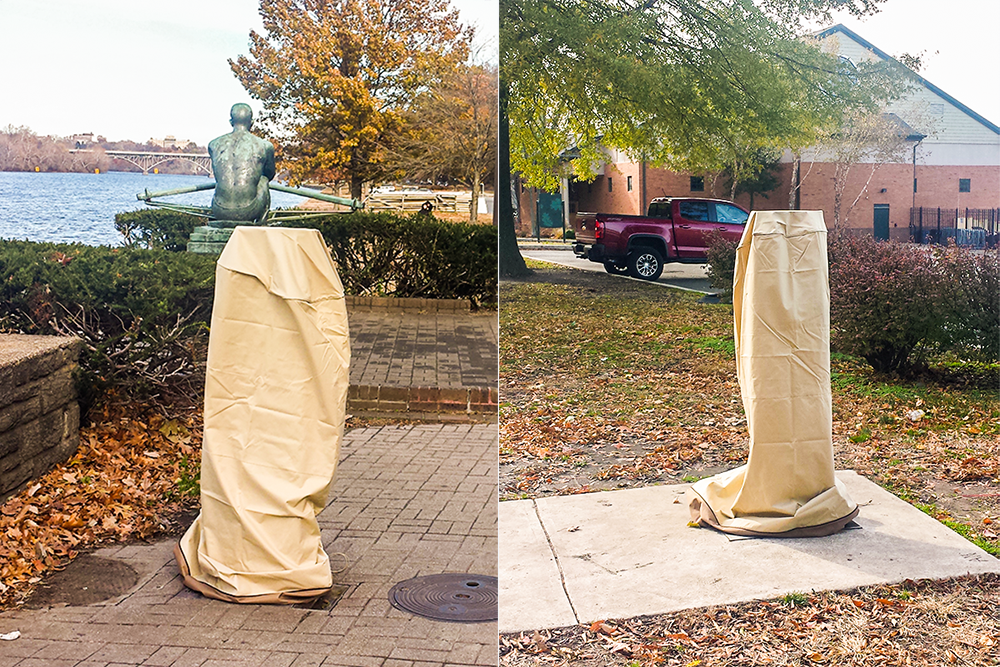
Water stations along Kelly Drive were closed following the Phila. Marathon for winterization and will reopen in spring 2018. Credit: Laura Copeland and Frank Gaffney, Philadelphia Water Department.
Following the 2017 Philadelphia Marathon, Philadelphia Water Department crews shut down and winterized all four Schuylkill River Trail water stations located between the Falls Bridge and Fairmount Water Works. The much-used features—offering fountains, bottle filling stations and ground-level bowls for dog walkers—are taken offline each winter to guard against freezing temperatures that can cause burst plumbing.
When spring temperatures allow, Water crews will perform maintenance, flushing and testing before restoring service to the stations.
First introduced in 2016, the stations provided trail users with more than 21,000 gallons of drinking water between late April and mid-November during the 2017 season. In terms of the volume of plastic, single-use bottles kept out of the waste stream, the stations distributed enough water to fill roughly 159,100 half-liter disposable bottles.
In addition to providing free access to top-quality drinking water for daily trail users, the water stations reduced waste and litter generated by marquee events held along Philadelphia’s scenic Schuylkill River waterfront.
The stations provided enough water to offset nearly 2,200 single-use plastic bottles during the 2017 Head of the Schuylkill Regatta alone. During the one-day Dragon Boat Festival, spectators and competitors drank enough Philly tap to fill nearly 1,700 16-ounce plastic bottles.
The Philadelphia Water Department is working with partners in the Office of Sustainability, Parks and Recreation, the School District, Public Health and other City departments to expand access to drinking water and promote Philadelphia’s top-quality water as an essential part of a healthy lifestyle.
Increased access to drinking water stations will also encourage refillable bottle use, furthering the City’s Clean PHL anti-litter and Zero Waste initiatives.
To get alerts about water station openings, subscribe to Philadelphia Water Department alerts with your email and mobile number here.
Your Pipes Can Freeze Too!
Note: Homeowners should be winterizing their plumbing, too. From shutting off outdoor hose connections to insulating basement windows near the water meter, there are number of things homeowners can do to prevent extreme cold from causing damage that a can lead to frozen pipes, flooded basements, and costly repairs. You can check out some cold-weather tips here and in the video below.
Keeping out the Cold from Philadelphia Water Department on Vimeo.